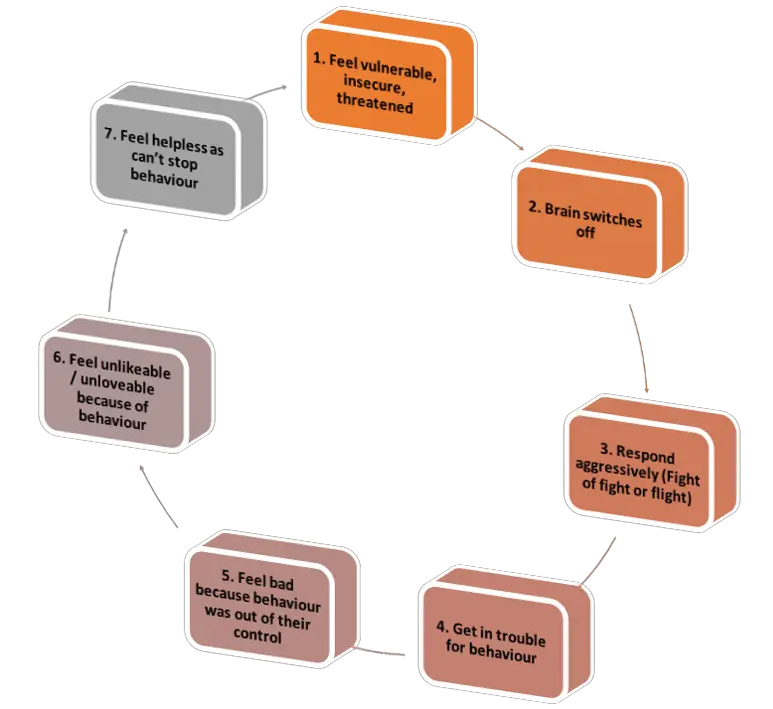 By Dawn Walton
By Dawn Walton
Guest writer for Wake Up World
“I hate you!” screams your adolescent child. This is the culmination of a dialogue that includes language that you never expected to hear directed at you, much less from your own child. Part of you wonders what would have happened if you dared to talk to your own parents that way. Part of you is shaking with rage or upset, that they have directed such hurtful vitriol at you – the person that has nurtured and loved them since they were a baby. What did you do to warrant this? You probably asked them to do some task, or maybe suggested they didn’t do something. Maybe you just asked them how they were.
[pro_ad_display_adzone id=”110028″]
This child that you are dealing with is not the same person you have loved and watched grow and develop. This is like a totally different person. They storm off to their room, banging and kicking things as they go. You sit, in shock, and wonder where you went wrong. Were you too strict or not strict enough? What will happen if they talk to others like this?
You try and work out how you can get through to them; to correct the behaviour before it goes too far.
A few hours later they reappear and apologise. They feel terrible. You sit and try and talk to them like a responsible adult. You explain that they can’t behave that way. You ask them why, looking for something you can use to change their behaviour. They don’t speak. They just shrug. They don’t make eye contact with you. Both of you are frustrated.
As you can’t let this sort of behaviour continue, you ‘punish’ them to make sure it’s clear how unacceptable this is. You remove their technology. This makes both of you miserable, but you feel you have to do something.
Your child becomes quieter and more introverted. You see them less and less. You are concerned. Their eating habits are not good. You suspect they may be self-harming. You hear them talking about having suicidal thoughts.
You try and talk to them, but all that happens is they start screaming at you again. And so the loop repeats.
This is the Behaviour Loop and you can see it repeated all over the world in families with adolescent children. It doesn’t matter whether you are a single parent, divorced, rich or poor. At times nearly three quarters of my client base is made up of children aged 8 to 16 years, because this is a normal part of the changes a child goes through as their brain develops.
The Behaviour Loop

Now let me explain what is happening in your child’s brain.
- Your child feels vulnerable or insecure in some way. This is an unsafe state in the subconscious part of your brain. The brain has a number of responses to feeling unsafe : fight, flight, freeze.
- Each of these states is emotional, therefore the cognitive part of the brain is switched off. Physiologically the heart is racing, and adrenaline is coursing through the body.
- Your child is no longer the same person that you know. With their brain switched off they have gone into survival mode. The fight part of the defensive response leads to them lashing out at you.
- When the risk has passed and the brain gets re-engaged, the child you know returns. They are now accountable for the behaviour they did when their brain was switched off. They are punished for the behaviour that they don’t understand and had no control over.
- Because they are experiencing the consequences for behaviour that took place when they were not themselves, they feel ashamed and guilty for their behaviour. This feels helpless because they didn’t choose to do it, and don’t understand why. This makes them feel vulnerable and insecure.
- With a functioning cognitive brain, they can understand the impact of their actions. They feel that you no longer like them or love them because clearly they say such horrible things. We are programmed to make things mean something about love. It’s a primitive survival need based on the animal kingdom, where a baby animal has to bond with its mother to survive. Our brains have not evolved, but they have adapted. Growing up, we look for the behaviour in any responsible adult to validate whether we are loved or not.
- Feeling unlikeable and unlovable makes your child hate themselves. They have no control over the behaviour and so they feel helpless and insecure. And so the loop repeats.
So what?
The trick to helping your child (and yourself!) through this phase is to step back a little from it.
Steps 1-3 : This is not your child. This is a part of them that has taken over for whatever reason. Your goal is to get that part to go away again as quickly as possible. Do you remember when your kid was little and had a tantrum? It didn’t work to reason with them. You had to distract them. It’s the same here. You can’t use logic to escape a negative emotional state. You can only use a positive emotion. There are various strategies for this. The simplest is probably to plan ahead. We have an agreement with our daughter that if she starts getting mad at us, before it goes any further, she will take herself to her room. We will not follow her. That way she gets to calm down and will often come back downstairs half an hour later and all will be fine, without her having got herself into trouble. So agree a safe exit strategy and agree not to pursue them. The other is to create distraction. You can act silly, play a song, or whatever. You are basically trying to go “Oooh look, a shiny thing!”
Steps 4-5: Do not do a post-mortem. Forgive and forget. You can even welcome the child you know back when they red mist has lifted. That way they don’t end up feeling bad for something that was out of their control. I know this is hard to do but it’s incredibly powerful. The reason it is not constructive to do a post-mortem is down to brain development. The pre-frontal cortex is not fully developed until they are at least 19-25 years. That part of the brain is used to understand consequence, make connections in meaning, and predict “what will happen if…”. When that part of their brain is not developed, they literally can’t understand things the way you do. So any punishment, or post-behaviour analysis, has nowhere to register an effect.
Steps 6-7: Nothing your child does will change whether you love them or not. If you love them, you love them no matter how they behave (and if you don’t love them, you don’t love them no matter how they behave!). And yet, the brain still needs to learn so it will make things about love (as mentioned earlier). So this is a simple action. You just repeatedly say “I love you even if..” randomly throughout the day. Your goal should be to get them to roll their eyes and say “I know! You say it all the time”. They may not be conscious of the change, but it will leave them feeling more secure and loved, which means the behaviour loop will be triggered less often.
And finally…this is just a phase. This is not your child. It is just their behaviour – and behaviour changes all the time. Hang in there. It’s not your parenting that’s causing it. It’s brain development as they become more independent people.
About the author:
 Dawn Walton is an author, public speaker and therapist based in the UK. Her passion in life is to help people realise that being screwed up is normal, and that everything can change.
Dawn Walton is an author, public speaker and therapist based in the UK. Her passion in life is to help people realise that being screwed up is normal, and that everything can change.
She is the author of 4 books, the most recent is “We’re all screwed up (and that’s OK)” . In the UK it is is said that 1 in 4 people has a mental health problem. This means that 3 in 4 don’t. This is simply not true. We all have our screw ups. Maybe what we should say is that 1 in 4 people is currently experiencing some kind of mental health problem that is getting in the way of their day-to-day lives. In this down-to-earth, jargon-free book, Dawn uses her experience from working with hundreds of clients as a therapist, and from her own abusive childhood, to explore the problems we all experience as adults. She will help you realise that we are all screwed up, and that it doesn’t stop you functioning. She will help you understand where common problems such as depression, anxiety and addictions come from
Email: [email protected]
Facebook: DawnatThinkitChangeit
Instagram: dawn_thinkitchangeit
Twitter: @ThinkitChangeit
Skype: @Thinkitchangeit
Therapy site: www.thinkitchangeit.com
[pro_ad_display_adzone id=”110027″]
